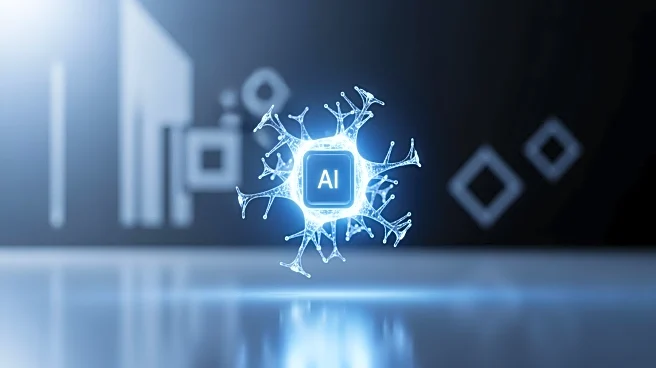What's Happening?
A recent survey conducted by PR shop 72 Point has revealed that AI tools and assistants are trusted by 44% of respondents, surpassing trust in government at 38% and influencers at 24%. The survey included
over 5,000 adults in the UK, highlighting a generational divide in trust levels, with Gen Z showing the highest trust in AI at 65%. The findings are part of a broader examination of AI's role in marketing and consumer trust, as marketers face a 27% 'confidence gap' in effectively applying AI, according to MiQ's 'Confidence Curve' survey. Despite the growing trust in AI, 82% of respondents still verify AI-generated results against other sources, indicating cautious optimism.
Why It's Important?
The increasing trust in AI over traditional institutions like government and influencers signifies a shift in public perception and reliance on technology. This trend could impact various sectors, including marketing, where AI is increasingly used for consumer engagement and decision-making. The confidence gap among marketers suggests a need for better understanding and application of AI technologies to harness their full potential. As AI becomes more integrated into daily life, businesses and policymakers may need to address public concerns about AI's role in journalism and customer experiences, ensuring transparency and maintaining human connections.
What's Next?
As AI continues to gain trust, businesses are likely to increase their investment in AI-driven customer experiences. Brands are preparing for a future where AI handles most customer decisions, though there is a concern that this could diminish personal experiences. Marketers may focus on bridging the confidence gap by improving measurement frameworks and understanding AI's capabilities. Additionally, the industry might see a rise in virtual influencers, as 76% of consumers trust them for product recommendations. The ongoing research and adaptation to AI technologies will shape future marketing strategies and consumer interactions.
Beyond the Headlines
The ethical implications of AI's growing role in society are significant. As AI tools become more trusted than government and influencers, questions arise about accountability and the potential erosion of human agency. The reliance on AI for news summaries and customer decisions could lead to a homogenization of experiences and information, challenging the diversity of perspectives. Furthermore, the creation of digital twins by content creators raises concerns about authenticity and trust in digital interactions. These developments necessitate a careful examination of AI's impact on cultural and social dynamics.









